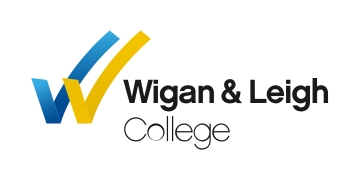Start preparing for adulthood earlier
Jude Macdonald, Director of inclusion, Keys Academies Trust
‘Preparing for adulthood’ permeates the current SEND code of practice, but outcomes and focus on this area only start as a requirement from Year 9. This is far too late.
Aspirational and realistic conversations should start in settings from the moment SEND is identified if we are to safeguard our learners and prepare them for life beyond the school gates.
For example, the duty to provide reasonable adjustments in the workplace relies on employees requesting them. We must give all learners the confidence to recognise and ask for adjustments as part of their learning journey. Year 9 is too late to embed this.
In addition, every tutorial session and assembly with a theme relevant to preparing for adulthood (eg. knife crime and exploitation) must be adapted and delivered to SEND learners in a way they can access, if we are to prepare them for life in modern Britain.
Redefine the S in SEND
Brenda Keirnan, Education director, Forming Connections and Inclusion advisory teacher, Derbyshire County Council
In education, precision matters and so does the language we use. The acronym SEND is part of our shared vocabulary, so it should stay, but ‘special’ can feel vague and, at times, suggest a child is “less than” their peers. Replacing it with ‘specific’ is a critical change.
Working with pupils with specific needs beyond high-quality or adaptive teaching, they need targeted and/or specialist approaches tailored to their individual needs.
The first part of any graduated response is to assess need and either adapt, intervene or support, so we are talking about specific challenges, adjustments and provision.
This isn’t about labels; it’s about clarity. Changing one word can move us from stigma to understanding, and from assumption to action.
Set teachers up for success, not failure
Chris Lefcovitch, Head of additional learning support and SENCO, MK College Group
Too many early-career teachers (ECTs) say they are not or don’t feel prepared for their classrooms. Training in SEND can no longer be treated as a bolt-on session. It must be woven through every aspect of training and repeatedly emphasised until it’s normalised.
Only then will teachers become equipped to meet their duty under section 1.24 of the code of practice, which states that high-quality, inclusive teaching is the foundation for SEND provision.
SEN cannot be an afterthought. It needs to be an integral, constant thread in preparing teachers for the inclusive classrooms they will inevitably be required to work in. This is even more important given the government’s clear drive to reform SEND on the basis of more inclusive mainstream settings.
But even well-prepared teachers can’t be expected to deliver their best in an ambiguous context.
Because only a small percentage of the current code of practice refers to ‘must’ and leaves the rest open to interpretation, schools operate amid localised thresholds and views on ordinarily available provision that lead to postcode variations and confusion.
Many schools receive pupils from more than one local authority and end up having to work differently for each. Meanwhile, inconsistencies arise for professionals and parents who are trying to access support and meet local requirements that are markedly beyond the law.
High-needs funding, consultation processes and Education, Health and Care Needs Assessment (EHCNAs) often require an entirely unique approach based on what local authority you intend to send it off to.
A centralised, person-centred approach full of finite detail and clarity would be revolutionary.
Clarify the curriculum for those with complex needs
Vicky Wells, SENDCo, Nova Primary Academy
Mainstream schools have worked exceptionally hard to manage a national rise in complex needs that has occurred sonce the SEND code of practice was published.
In September 2025, Nova will admit 15 pupils with EHCPs pupils into its early years provision, taking us to nearly 10 per cent of our cohort with such plans (against a national average of 3.5 per cent). Half of our school’s pupils are eligible for pupil premium, and we operate a 12-place enhanced resource provision for deaf children.
This increase in need has led us to review and make significant and relevant changes to our SEND policy and practices to ensure we can adapt to meet the growing need, very little of which are reflected in the current guidance within the code of practice.
Specifically, the section of the code relating to ‘Curriculum’ (6.12) needs to be a focus. There needs to be much more guidance and training on how mainstream schools can consistently adapt their curriculum provision for learners with complex needs.
To ensure every school plays its part in a more inclusive system, the law should clearly communicate expectations about accommodations and staff development.
Mandate SENDCos on leadership teams
Anonymous independent school SENDCo (with Jude Macdonald)
The code of practice states that SENDCos ‘should’ be part of school leadership teams. This should be rephrased to ‘must’. Too often, SENDCos are excluded from strategic decision-making, not only massively devaluing the role but directly affecting the children who are nominally their responsibility.
Too many SENDCos remain isolated from decisions about curriculum, assessment, and school systems and processes, when involving them in the planning stage is not only crucial in getting support right first time but in preventing more (and more complex) workload later.
In addition, significant variation in SENDCo pay scales and working conditions lead to disparities in workload. Reducing directed time for SENDCos increases the level of whole-school support for SEND learners through coaching, team teaching, developing ordinarily-available provision, identification and quality assurance.
Make a graduated approach the norm
Charlotte Ims, SEND lead, Thomas Deacon Education Trust
The code of practice currently states that schools should have a clear approach to identifying and responding to SEN (Section 6.14). This implies guidance rather than obligation. To ensure consistency and accountability, this is another ‘should’ that ought to become a ‘must’, thereby embedding the graduated approach as a statutory requirement.
Supported by targeted training, adequate funding and cross-agency collaboration, this would enable more children’s needs to be met within ordinarily-available provision, reducing reliance on specialist placements and the number of requests for EHCNAs.
From November, Ofsted’s new inspection framework will make inclusion a core priority, with a heavy emphasis on SEND and disadvantaged children. Schools have evidence from the EEF that high-quality teaching is foundational to inclusive classrooms. Now, they need a code of practice that supports them in delivering it.
Clarifying and making the graduated approach within the code a statutory obligation would help distinguish between pupils needing targeted support and those requiring catch-up or keep-up interventions. The Assess–Plan–Do–Review (APDR) cycle, central to the graduated approach, ensures that support is responsive and evidence-based.












Your thoughts